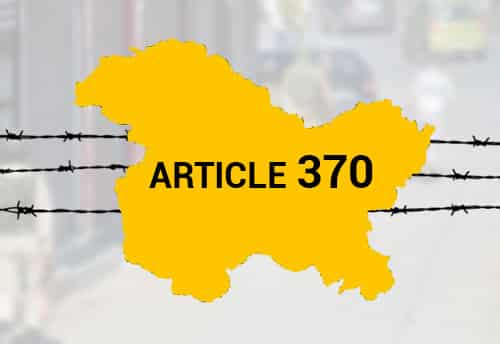Following is the broad framework of how the state of Jammu and Kashmir will cease to exist after the Centre’s decision to scrap Article 370 of the Constitution, which gave special status to Jammu and Kashmir:

The Jammu and Kashmir Reorganisation Bill 2019:
*A Union Territory of Ladakh will be formed. It will contain Kargil and Leh districts.
* A Union Territory of Jammu and Kashmir will be formed. It will contain all the areas other than Ladakh and Leh.
Status of Governor
* The Governor of the existing state of Jammu and Kashmir will become Lieutenant Governor of UT of Jammu and Kashmir and UT of Ladakh.
Representation in Council of States
* Four sitting RS members from J&K will be deemed to be members of UT of J&K. Their term remains unaltered.
Representation in Lok Sabha
* UT of J&K will have five LS seats
* UT of Ladakh will have one LS seat
L-G, Assembly of J&K
*The provisions contained in Article 239A, which are applicable to ‘Union territory of Puducherry’, shall also apply to the ‘Union territory of Jammu and Kashmir’
* The legislative assembly will have 107 seats with direct elections. (J&K assembly earlier had 111 seats out of which 87 were elected);
* 24 seats in Pakistan Occupied Kashmir (PoK) will remain vacant (same as in earlier assembly)
* L-G can nominate two women members to the assembly;
* The term of the assembly will be five years (as against six years earlier)
* Central laws have been made applicable to UTs of Jammu and Kashmir and Ladakh
Government proposes delimitation of assembly segments
* There will be reorganisation of assembly segments; constituency maps will be redrawn;
* At the moment Jammu region has 37 assembly segments and Kashmir has 46

What Article 370 prevented
* Implementation of Right to Information
* Right to Education
* Comptroller & Auditor General’s scrutiny
* Freedom from Sharia law for women in Kashmir
* Rights to panchayats
* Reservation of 16% for minorities such as Hindus and Sikhs
* Indians from other states buying or owning land in Kashmir
* Pakistanis from getting Indian citizenship by marrying Indian women from Kashmir.
Changes to the state of Jammu & Kashmir post Article 370
Logistically, what's different about J&K now?

Reading Time: 2 minutes




